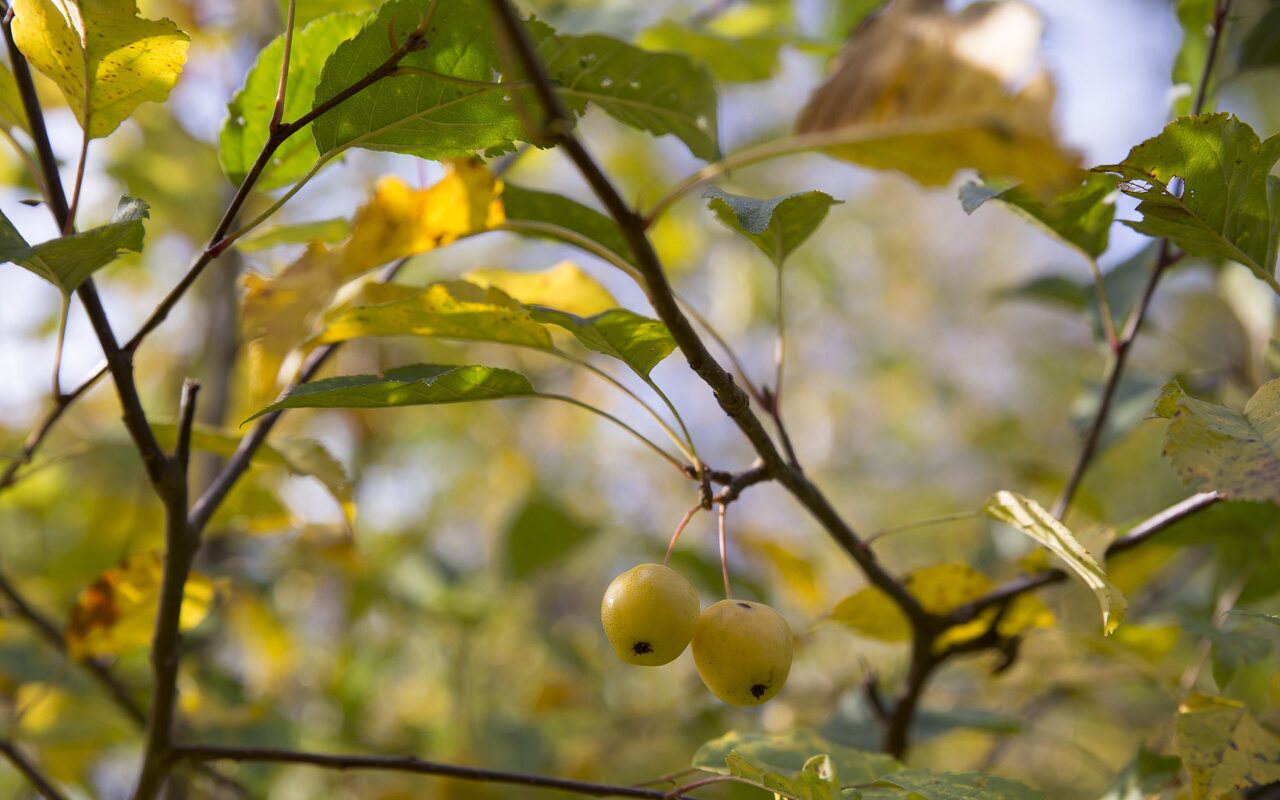
Malus sylvestris · miškinė obelis
- European crab apple, European wild apple
- Holzapfel, Europäischer Wildapfel, Krabapfel
- miškinė obelis
- mežābele
- jabłoń dzika, płonka
https://en.wikipedia.org/wiki/Malus_sylvestris Native to Europe. European wild apples hybridise readily with domesticated apples. Truly wild tree has thorns. Wild apple leaves tend to be somewhat smaller, stiffer and shinier. The underside of wild apple leaves also tends to be less hairy, often lacking hairs altogether. The crown of wild apples is also densely branched, whereas the crown of domesticated apples tends to be more loosely arranged with fewer, straighter branches. Finally, wild apple fruits tend to be smaller. The apples are usually below the threshold of 3 cm diameter.
The tree is widespread throughout Europe, with the exception of the extreme north and south. Additionally, it is also distributed in Anatolia and further into the south Caucasus. However, it occurs in a scattered distribution pattern as single individuals or in small groups.
The cultivated apple M. domestica usually are more closely related to M. sylvestris than to M. sieversii.
Savaime auga mišriuose lapuočių miškuose, pamiškėse, šlaituose, nuo seno auginta kaimų soduose. Labiau plinta derlinguose bei vidutinio drėgnumo priemoliuose. Medis pakenčia unksmę.‥
0 comments
Add a comment